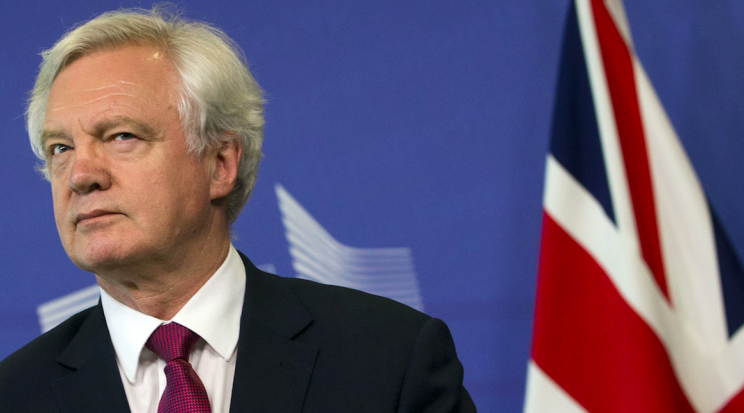Only 1 in 4 Britons think the government is prepared for Brexit negotiations

Only one in four Britons believe the government is prepared for the Brexit negotiations, a poll has revealed.
The survey by YouGov found that just 25% of people think the Conservative government is ready to get the best deal for Britain.
The poll said that 21% thought the government was ‘quite well prepared’ for the negotiations, which began in Brussels on Monday.
And only a further 4% believe we are ‘very well prepared’ to negotiate with the European Union.
62% of Brits don't think the government is well prepared for Brexit negotiations https://t.co/FahfvRQ7fk pic.twitter.com/ekGjwld7Kf
— YouGov (@YouGov) June 19, 2017
In contrast, almost two thirds of those surveyed believe the government is not ready for the negotiations.
Three out of ten people (30%) said Britain is ‘not well prepared at all’ and another 32% believe the government is ‘not very well prepared’.
A total of 4,305 adults in the UK were surveyed by YouGov about Brexit on Monday.
MORE: Britain is ‘laughing stock of Europe’ says Swiss newspaper
MORE: UK makes big concession on day one of Brexit talks
The results are even more striking when broken down among party political lines.
Among Labour voters, only 12% think the government is ready, compared to 79% who believe they are not prepared.
But Conservative supporters are divided on the issue – 46% believe their party is prepared to secure a deal with the EU, but a similar number, 43%, think it isn’t ready.
Older voters are more likely to believe in the government, with 40% of those aged 65 and over saying they are prepared, compared to just 10% among 18 to 24-year-olds and 19% among 25 to 49-year-olds.

The poll is hardly good news for Brexit secretary David Davis, who met the EU’s chief negotiator Michael Barnier in Brussels on Monday.
While Mr Davis said he was optimistic about the talks process, Mr Barnier had a very different message.
He warned the UK faced ‘substantial’ consequences as a result of Brexit but insisted it was ‘not about punishment’ or revenge.
In a reference to prime minister Theresa May’s negotiating mantra, he said: ‘For both the European Union and the United Kingdom, a fair deal is possible and far better than no deal.’
After the first day of the negotiations, which could shape the UK’s economic and political future for a generation, it was agreed that working groups of officials would aim to make progress on the issues of citizens’ rights, the UK’s financial settlement, the so-called divorce bill, and other issues to do with separation.

The most senior officials on either side will lead work on efforts to resolve the problem of the border between Northern Ireland and the Republic of Ireland, a situation Mr Barnier acknowledged is politically sensitive at a time when the Tories are seeking the support of the Democratic Unionist Party to prop up Mrs May’s minority government.
Only when ‘sufficient, concrete progress’ on the first phase has been made will Mr Barnier recommend to the European Council that the negotiations can enter the next stage, taking in the future trading relationship, with that recommendation possibly coming at October’s summit of EU leaders.
After seven hours of talks in Brussels, Mr Davis, who had previously promised the ‘row of the summer’ over the timetable for the negotiations, remained upbeat.

Both sides acknowledged the clock was ticking, with the date for the UK’s departure from the EU fixed for March 2019.
Mr Davis denied suggestions the agreed timetable showed Britain’s ‘weakness’ and insisted it is ‘completely consistent’ with the government’s aim of parallel trade and exit talks.
‘It’s not when it starts, it’s how it finishes that matters,’ he said.
‘The UK has been crystal clear in our approach to the negotiations, the withdrawal process cannot be concluded without the future relationship also being taken into account.
‘They should be agreed alongside each other, this is completely consistent with the council’s guidelines which state nothing is agreed until everything is agreed.’
On Tuesday, Mr Davis will meet members of Spain’s government as part of his effort to build bridges across the continent.
Mr Davis’s meeting with the administration of prime minister Mariano Rajoy are expected to include the thorny issue of Gibraltar after the EU’s guidelines for talks suggested the disputed territory’s future economic status might be subject to a veto from Madrid.
British sources have insisted the sovereignty of the Rock is not up for discussion.

 Yahoo News
Yahoo News 

